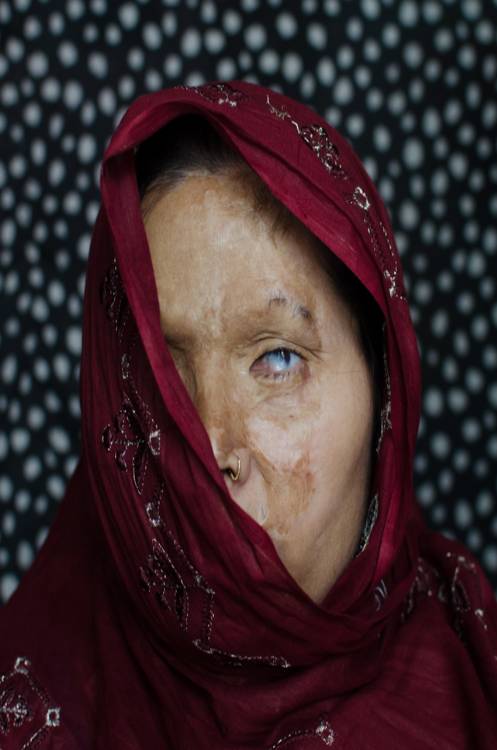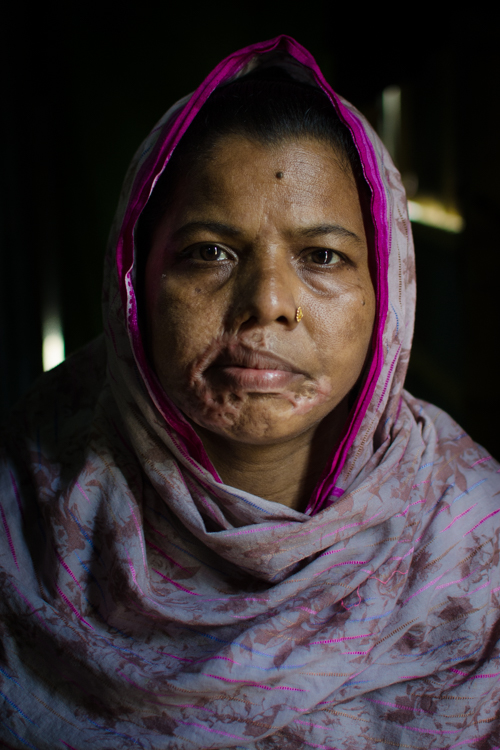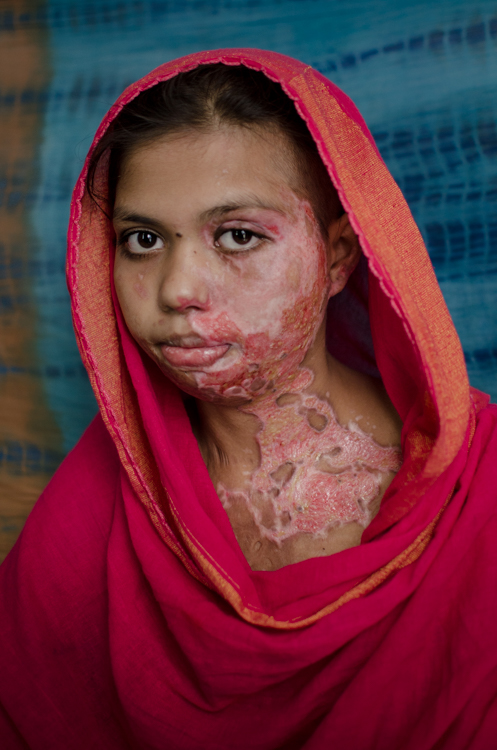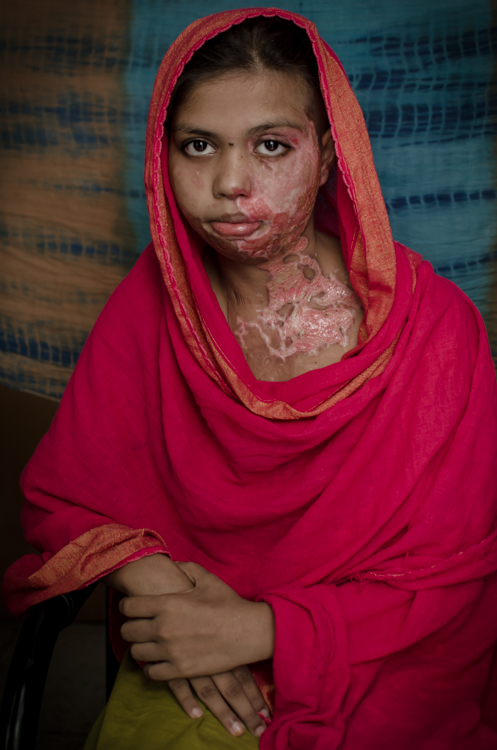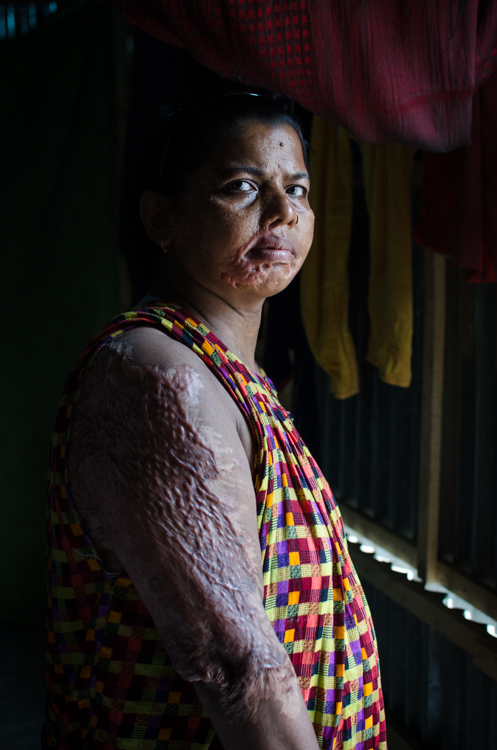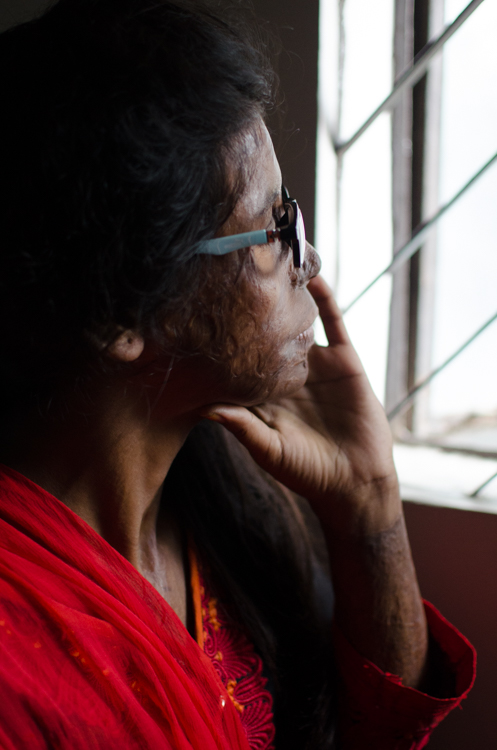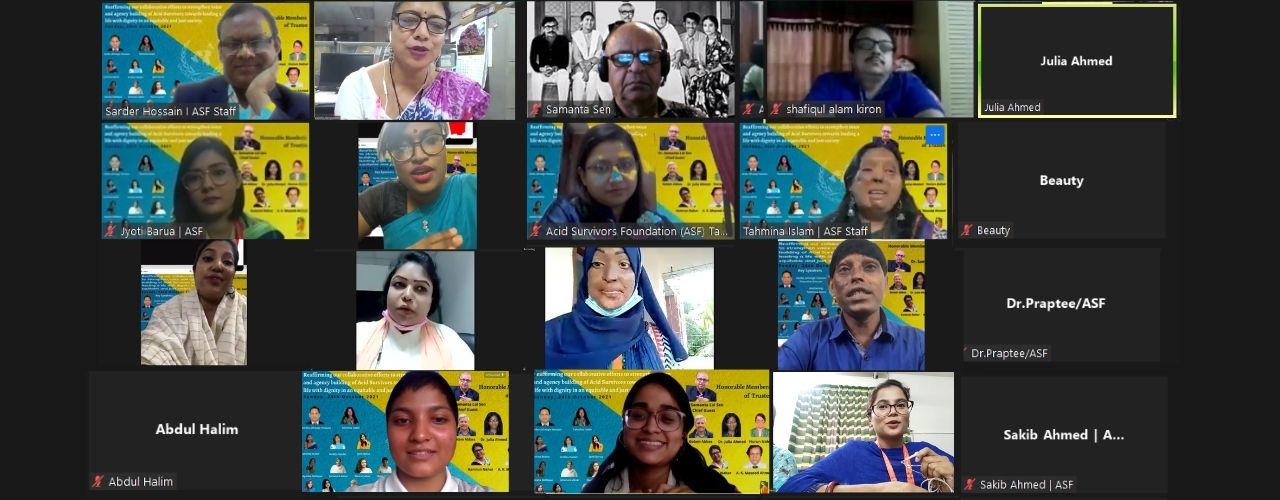
On the occasion of UN day 2021, October 24, Acid Survivors Foundation (ASF) organized an in-house event over Zoom under the theme “Reaffirming our collaborative efforts to strengthen the voice and agency building of acid survivors towards leading a life with dignity in an equitable and just society”.
The purpose of the event was to create a blueprint for strategic planning based on priorities addressed by the speakers. And help set the stage for evidence-informed decision-making to advance ASF’s mission.
Speakers comprised members from four internal four actors namely the BoT including founder member, Dr. Samanta Lal Sen, National Chief Coordinator of Plastic Surgery and Burn Projects, Advocate Kamrun Nahar, Dr. Julia Ahmed, and Mr. Shafiqul Alam Kiron as BOT members; ASF staff members, survivors’ representatives, and interns.
The event was inaugurated with a few words from the Executive Director and anchored by Ms. Tahmina Islam, Coordinator-Case and Partnership Management. Following which survivor panelists addressed services most relevant to victims. Services included education support, health care, crisis shelter, and skill development training on online freelancing and artisanal handicraft work. Moreover, survivors demanded ASF’s outreach programs be strengthened so that rural survivors are made aware ASF is still active and avail its services.
In response to that, ASF Healthcare Coordinator, Hridita Haider said the visibility issue due to the financial crisis of the foundation is undergoing. But its “bio-psycho-social model is still operational albeit in a limited capacity”. Services including medical consultation (both remote and face-to-face), physiotherapy, referral services, and case management are still offered and necessary medicine couriered. In case of crisis shelter, with special permission, accommodation is also arranged at ASF’s premises on a need-by-need basis. Lastly, on behalf of ASF, Ms. Hridita requested Dr. Sen to reserve five to ten beds over Sheikh Hasina National Institute of Burn and Plastic Surgery (SHNIBPS) for survivors as the foundation works to re-establish its own.
Regarding ASF’s legal aid, Program Officer – Legal, Jyoti Barua, said they are offering remote legal consultation and plans to strengthen its referral system and raise awareness on acid violence and its punishment at the grassroots level.
Following the staff panel, interns from various universities shared their take on cost-effective strategies to work around the financial predicament. From digitizing services and raising awareness via virtual campaigns to using the power of evocative writing in case stories to get messages across were among the key points raised by the youths. Moreover, students emphasized on seeking sponsors to invest in ASF’s work and developing in-house income-generating projects to help sustain the foundation.
In the end, members of BoT shared that they will devise a strategy to implement a proper shelter home for survivors. And requested all departments to plan a 6-month key action points considering all the issues raised and recommendations given in the session.
With that, the event was concluded with a few words from Dr. Sen as a Chief Guest and the ED. “I started this foundation for my dear survivor brothers and sisters”, shared Founder Member Dr. Samanta Lal Sen, “I will always remain by your side and I am confident we will rise beyond the current situation and meet our targets”.
The Executive Director, Sarder Jahangir Hossain, chaired the event and concluded the session saying, “as we push past the existing fund crisis, I implore all stakeholders to remain united and stay true to our vision of an acid violence free Bangladesh where survivors flourish and live with dignity”.

